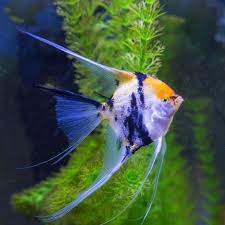Dragons in Festivals Celebrating Chinese National Heroes

In Chinese culture, the dragon is not only a symbol of power and strength but also a deeply rooted cultural and spiritual icon. It represents the essence of Chinese identity, the harmony between nature and humankind, and the mythological connection to the divine. The image of the dragon is often celebrated during festivals, particularly those that honor national heroes and historical figures who have shaped the country’s culture and identity. These festivals are a unique way of blending the reverence for ancestral traditions, the cultural significance of the dragon, and the commemoration of heroic deeds that have influenced China’s history.
In this article, we will explore how the dragon is integrated into festivals that celebrate the heroic figures of Chinese history. These festivals not only highlight the valor and sacrifice of individuals but also serve to emphasize the ongoing relevance of these heroes in Chinese cultural and national pride. Let us delve into the role of the dragon in Chinese festivals, its connection to national heroes, and the ways in which these celebrations continue to shape the cultural narrative of China.
The Symbolism of the Dragon in Chinese Culture
Before we explore the role of dragons in festivals honoring national heroes, it is essential to understand the symbolic importance of the dragon in Chinese culture. In traditional Chinese thought, the dragon is a mythical and divine creature, embodying power, strength, wisdom, and prosperity. It is considered the ruler of the skies and the waters and is believed to control the elements such as rain and thunder, which are essential for agricultural prosperity.
Unlike the malevolent creatures depicted in many Western cultures, the Chinese dragon is benevolent, symbolizing good fortune and harmony. This positive association with power and strength has made the dragon an essential figure in Chinese folklore, art, and cultural practices. The dragon is also intricately connected with imperial power; Chinese emperors often referred to themselves as the “Dragon Son of Heaven,” symbolizing their divine right to rule.
The Dragon in Festivals Celebrating Heroes
The dragon often appears in festivals that celebrate national heroes or significant historical figures. These festivals are not only important cultural events but also act as reminders of the values and ideals that heroes have instilled in Chinese society. Many heroes in Chinese history, from military leaders to scholars and revolutionaries, are remembered for their contributions to the country’s unity, independence, and cultural heritage. The dragon’s role in these celebrations helps underscore the larger-than-life nature of these figures and their ongoing relevance to modern Chinese society.
The Dragon Boat Festival: Celebrating Qu Yuan
One of the most iconic festivals in China that features the dragon is the Dragon Boat Festival (Duanwu Festival). Held on the 5th day of the 5th lunar month, this festival celebrates the life and death of the great poet and statesman Qu Yuan (c. 340–278 BCE), who is considered a national hero in Chinese culture. Qu Yuan was known for his loyalty and patriotism to the Chu kingdom, and he became famous for his literary works and his protest against corruption and political betrayal.
According to legend, Qu Yuan drowned himself in the Miluo River after the fall of his homeland, and local people threw rice dumplings (zongzi) into the river to protect his body from being eaten by fish. To this day, the Dragon Boat Festival commemorates his sacrifice and patriotism, and the dragon is a key symbol in this celebration.
The festival’s most prominent feature is the dragon boat races, which are a tribute to the boats used by locals to search for Qu Yuan’s body. The boats themselves are often decorated with dragon heads, which represent the protection of the water spirits and honor Qu Yuan’s spirit. The dragon boat races are not only thrilling competitive events but also serve as a reminder of the heroism, sacrifice, and loyalty that Qu Yuan embodied.
The dragon in this context symbolizes Qu Yuan’s deep connection with the natural world and his willingness to sacrifice for the greater good of his country. The dragon also represents the unity of the people, as the teamwork required to row the boats mirrors the collective effort needed to fight for justice, much like Qu Yuan fought for his ideals.
The Mid-Autumn Festival: Celebrating the Heroism of Wu Gang
The Mid-Autumn Festival, which takes place on the 15th day of the 8th lunar month, is another key celebration in China that ties into the theme of heroes and the symbolic use of dragons. The festival is traditionally associated with moon worship, the harvest, and family reunions. However, it is also linked to various myths and legends about heroism and perseverance. One of the most famous myths connected to the Mid-Autumn Festival is the story of Wu Gang, a legendary hero who is said to live on the moon.
According to the legend, Wu Gang was a scholar who sought immortality and was granted the task of chopping down a laurel tree that grew on the moon. However, the tree regenerated itself each time he struck it, forcing Wu Gang to eternally chop at the tree without ever achieving his goal. The story of Wu Gang represents the idea of eternal struggle and the pursuit of an unattainable goal. His perseverance and determination symbolize the heroic qualities that are celebrated during the Mid-Autumn Festival.
The dragon plays a symbolic role in this festival, representing the transcendence of time and the connection between the earthly realm and the celestial world. The moon, where Wu Gang is eternally trapped, is often depicted as a dragon, signifying the harmony between the natural world and the divine. The dragon also serves as a symbol of the moon’s power to provide light and life, just as Wu Gang’s sacrifices symbolize the strength of the human spirit and the pursuit of righteousness.
The Lantern Festival: Honoring Historical Heroes
The Lantern Festival (Yuanxiao Festival), celebrated on the 15th day of the Chinese New Year, is a time for communities to come together to enjoy festive lights, lantern displays, and cultural performances. It is traditionally a celebration of the first full moon of the lunar year, symbolizing hope and renewal. While the Lantern Festival is often associated with family unity and joy, it also carries significant cultural meaning and is linked to the honoring of historical heroes.
In particular, the Lantern Festival is sometimes used as an occasion to honor the heroism of military leaders and revolutionaries in Chinese history. These figures are celebrated for their bravery and selflessness in defending the nation, and their stories are shared during the festival to inspire the next generation. The dragon, often featured in the form of elaborate lanterns, serves as a symbol of protection and strength, reminding people of the courage and resilience of these heroes.
For instance, lanterns in the shape of dragons are commonly seen at the Lantern Festival as a representation of imperial power, strength, and vitality. These lanterns not only celebrate the mythical aspects of the dragon but also commemorate historical figures who fought for the nation’s protection and stability. The festival, with its dragon imagery, offers a platform to remember and reflect on the legacies of those who have fought for China’s independence and prosperity.
The Dragon as a Symbol of National Unity and Pride
The recurring use of the dragon in festivals that celebrate national heroes also highlights the idea of unity and pride in the Chinese nation. Heroes like Qu Yuan, Wu Gang, and other figures in Chinese folklore and history are seen as embodiments of the collective strength and spirit of the Chinese people. The dragon, as a symbol of both individual power and collective harmony, underscores the idea that national heroes are not just individual figures but also representatives of the greater Chinese community.
In the context of these festivals, the dragon serves as a unifying force that connects the past, present, and future. It reminds the people of China of their rich cultural heritage and the sacrifices made by their ancestors to preserve their traditions and protect their land. The dragon’s power to control the elements, to soar above the earth, and to govern the heavens symbolizes the transcendent strength that binds the nation together.
Conclusion
The dragon plays a multifaceted role in the festivals that honor national heroes in China. It serves as a symbol of strength, protection, and spiritual power, while also representing the deep cultural connection between the people, their heroes, and the natural world. Through dragon boat races, lantern displays, and lunar celebrations, the dragon continues to serve as a powerful reminder of the heroic sacrifices made by individuals throughout Chinese history.
As China continues to modernize, the dragon remains a central figure in the country’s cultural identity, linking its rich history to contemporary celebrations of national pride and unity. By honoring the dragon during these festivals, the Chinese people reaffirm their connection to the past, to their heroes, and to the enduring spirit of the nation.

